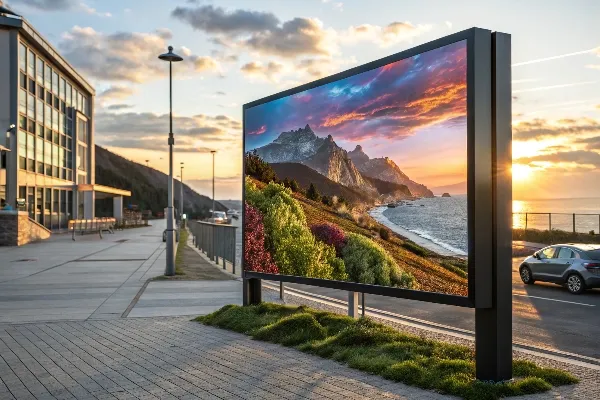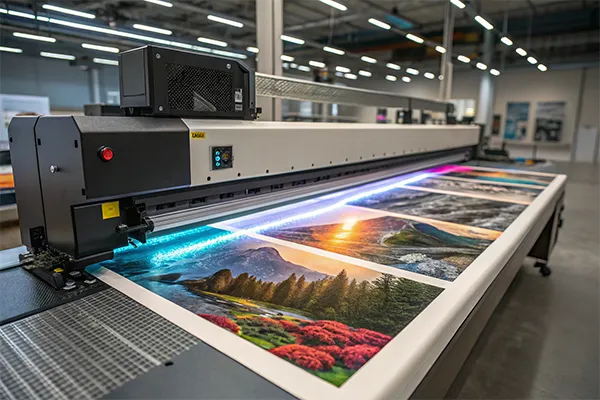お問い合わせの返信が遅れるのを避けるため、メッセージと一緒にWhatsApp / WeChat / Skypeを入力してください。そうすれば、すぐにご連絡できます。
24時間以内に返信いたします。緊急の場合は、WhatsAppを追加してください。 +86 17864107808、またはWeChat: +86 17864107808。または電話 +86 17864107808 直接。
*当社はお客様の機密性を尊重し、すべての情報を保護します。当社はお客様の情報をお問い合わせへの回答にのみ使用し、迷惑メールや宣伝メッセージを送信することはありません。
I once struggled with low-quality prints and wasted materials. I then discovered a solution that changed my work.
UV flatbed printers are versatile machines that print on rigid and flexible materials. They cure ink instantly to produce vibrant, durable images.

I now share detailed insights into related questions that many of my peers often ask.
I wondered if mixing inks could improve my printing results. I felt uncertain and sought clear answers.
Mixing UV ink with regular ink is not advised. Their different properties can lead to poor adhesion, inconsistent curing, and damaged print quality.
Diving deeper, I researched the technical aspects of both inks. I learned that UV ink cures under ultraviolet light, which means it hardens almost instantly when exposed to a UV source. Regular ink dries by absorption or evaporation and lacks the special additives found in UV ink. I did a few tests and noticed that when I mixed the two, the prints were uneven and the colors dull. The printer sometimes clotted, causing delays and extra maintenance work. I spoke with experts and read technical guides to confirm my findings.
I found that the formulation of UV ink is designed to work with UV curing systems. Regular ink is simpler and more suited for standard paper printing. The differences in viscosity and drying mechanisms are significant.
| インクの種類 | Drying Method | Viscosity | Key Additives |
|---|---|---|---|
| UVインク | UV light curing | 高い | 光開始剤 |
| Regular Ink | Evaporation/absorption | 低い | Water-based dyes |
I conducted small experiments to check consistency and adhesion. The mixed ink often failed to bond well with the substrate. My results were clear: the combination reduced durability and color vibrancy. I learned that using the correct ink is crucial for maintaining print quality. Following the manufacturer’s guidelines is the best approach. I now always use the designated UV ink for my flatbed printers to ensure optimal performance and longevity.
I was curious about the cost of UV印刷 when I started comparing printing technologies. I saw many examples but did not know the real price.
UV printing is generally more expensive than traditional methods due to higher equipment and ink costs. However, its efficiency and quality may offer long-term savings.

I delved into the cost factors of UV printing and compared them with other methods. I noticed that the initial investment in a UV flatbed printer is higher because of its advanced technology. The special UV inks used in these printers also have a higher cost than conventional inks. I gathered data from suppliers and analyzed price lists, which showed a noticeable difference in upfront costs. However, I also learned that UV printing saves time with its fast curing process, reducing the need for secondary finishing steps. This efficiency minimizes labor costs and material waste over time.
I broke down the cost into several key factors: the equipment price, ink expenses, maintenance, and energy use. Each factor contributes to the overall cost of running a UV printing operation.
| 要素 | Cost Impact | 注記 |
|---|---|---|
| Equipment Price | High upfront cost | Varies by model and advanced features |
| Ink Costs | Higher than regular | Special formulations raise the expense |
| メンテナンス | 適度 | Regular servicing and occasional repairs |
| Energy Use | 適度 | UV curing systems require additional power |
I compared my own expenses after switching to UV printing. Although the initial costs were steep, I found that the fast curing and low rework rates helped reduce overall production costs. I also noted that improved print quality and durability led to fewer customer complaints and less waste. This balance between cost and quality made UV printing a viable option for my business. I now believe that while the price is higher initially, the long-term benefits of reduced waste, improved quality, and faster production times justify the investment.
I sought to understand the clear benefits of UV printing to see how it could enhance my work. I was eager to find advantages that might outweigh its costs.
UV printing offers fast drying, vibrant colors, and the flexibility to print on many surfaces. It delivers superior durability and precision, which is ideal for modern printing demands.

I explored the benefits of UV印刷 and was impressed by its many advantages. First, the fast curing time reduces the need for additional finishing processes. I no longer have to wait for ink to dry, which speeds up production. Second, the vibrant colors and sharp details elevate the quality of every print job. I can print on a wide range of substrates, including wood, metal, glass, and plastic. This flexibility opens up new creative avenues for my projects. I also discovered that UV prints are more resistant to fading and environmental damage. This durability is key for outdoor signage and high-use products.
I identified several major benefits and organized them for clarity.
| 利点 | 説明 | My Experience |
|---|---|---|
| 速乾性 | Ink cures instantly under UV light | Reduced waiting time and increased speed |
| 高品質 | Produces bright, sharp images | Enhanced visual appeal and precision |
| 汎用性 | Prints on various substrates | Expanded creative and application options |
| 耐久性 | Resistant to fading and damage | Long-lasting prints in tough conditions |
I have used UV printing for many projects and have seen consistent improvements in efficiency and quality. The process reduces downtime as prints are ready immediately after production. I value the ability to print on non-traditional materials, which allows me to offer unique products to my clients. The vibrant colors and fine details1 have boosted my reputation for quality. I have also observed that UV printing reduces the need for reprints, saving both time and money. My overall experience is that the advantages of UV印刷2 far outweigh the challenges. I recommend it to anyone looking for a modern, efficient, and high-quality printing solution.
I learned that UV flatbed printers are versatile and high-quality. They offer fast curing, vibrant prints, and the ability to print on many materials. They are a smart choice for modern needs.